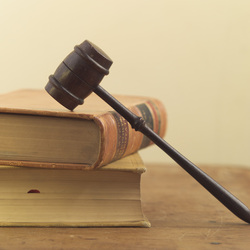But there are other tasks that you may need to tend to on a more immediate time table after death. It can be helpful to break down tasks that need to be done into small, manageable pieces.
The most pressing matters for the family to address is who will take care of pets or children. If there’s a Will, hopefully an answer is readily clear. If such questions aren’t addressed in a Will, or a Will is hard to find, coming to family decisions around the care of children and pets are a priority. If whoever is going to take care of the children is not their legal parent and is going to need to make decisions or sign paperwork for school or health care in the immediate future, that may be a reason to open a probate, guardianship, or third party custody action on an expedited matter. If you are facing that situation, let us or any other law firm you call know you have those issues so they can move you earlier in the queue.
Once the kids and pets are at least temporarily sorted, it’s very easy to be completely enveloped in funeral planning but some other immediate things that are useful to consider are:
- Have someone collect the mail for you.
- Make sure that valuable property is protected, whether that means making sure payments are made to the alarm company for a house, as well as house maintenance like electricity and water bills, and that lights in the house are on timers to make it look lived, any necessary lawn care to keep up appearances, and have the house is checked on. (If you need to advance money for this, keep good track of what you spend and keep receipts. These monies can usually be paid back from the decedent’s assets once the process to wrap up their affairs is determined.)
- If you are named executor in the will, you may want to check the house for items of value and make sure they are secured somewhere safe. We recommend letting other family members know you are securing the items so no one is upset to not find them in an expected place.
- Cancel unneeded repeat services. if there’s a gym membership, cellphone bill, or cable, or newspaper, or anything else that won’t be used, mail the service providers about the death.
Delegating and working together as a family can help make these tasks easier, e.g. if each sibling takes a service provider to cancel the service of.
Once these pressing concerns are dealt with and funeral or other ceremonies are complete, it’s a good time to take stock of the Estate to prepare for your initial visit with an attorney. Getting a general idea of assets held by the estate, whether those assets are real estate or financial accounts, and the debts of the estate will provide a basis to determine if you’ll need to conduct a probate. As you make this assessment keep an eye out for a Will. Note how the assets are held and if they have named beneficiaries. Going through mail and any files you find may help shed light onto debts. If there are a lot of debts and you’re worried about dealing with all of the creditors, it may be worth it to have a probate, particularly if the debts outweigh the value of assets in the estate. The executor is never personally liable for debt of an estate they’re probating.
Don’t panic if you don’t have all the answers before you meet with your attorney but the more information you have, the more you will get out of that first meeting and the more the attorney will be able to determine what process is best for you to do and how to get that started.
Phinney Estate Law offers free ½ hour consultation to all probate clients. Call to schedule one at (206) 459-1908 or email us at [email protected].







 RSS Feed
RSS Feed